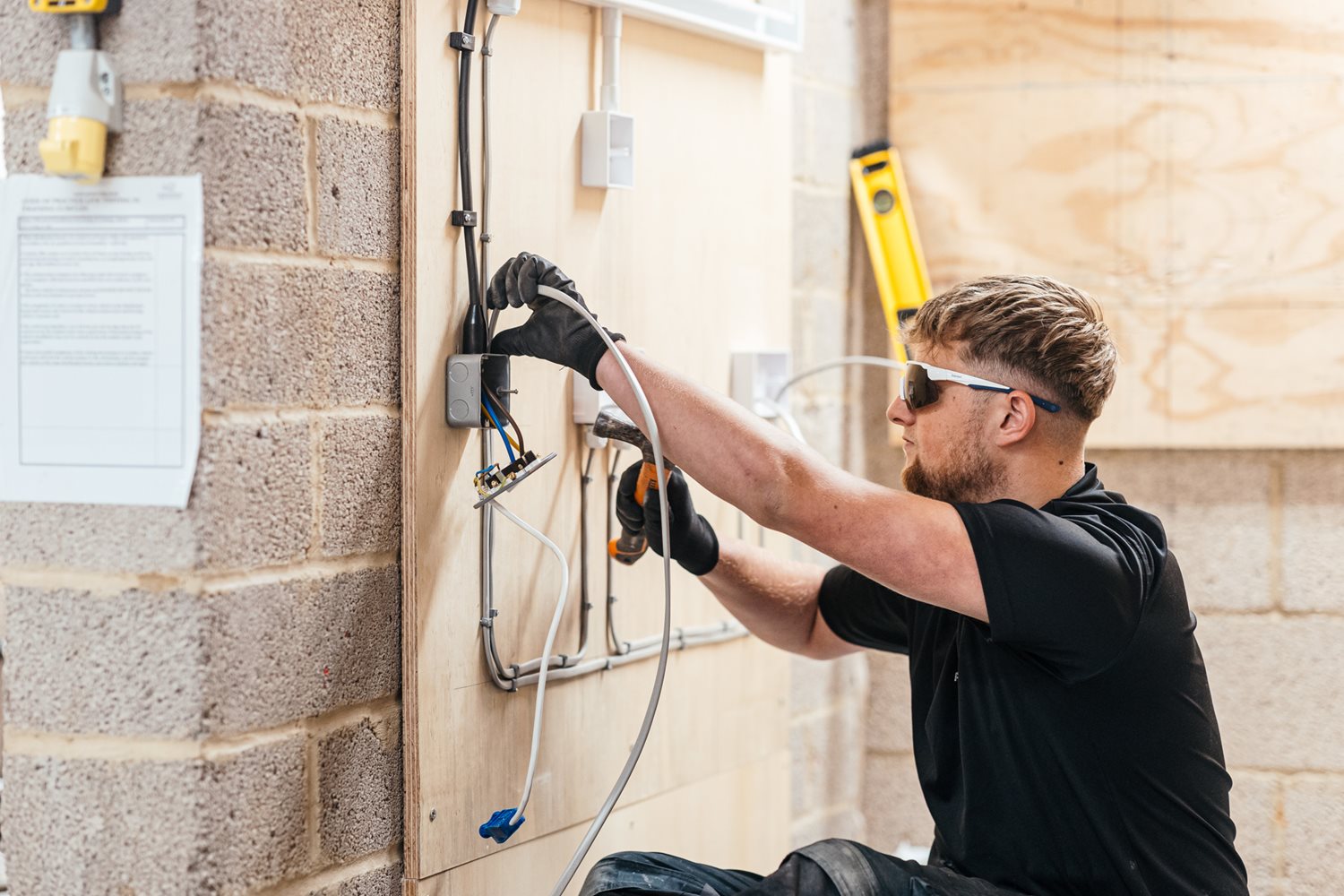NICEIC CEO Richard Orton shares his perspective on the 2025 Spending Review and what it could mean for NICEIC certified businesses:
Now that the dust has settled on the Spending Review, there are several developments for our sector to watch closely. As the Chancellor announced what she called the biggest investment in social and affordable housing in 50 years, it’s clear the government views housing as a central pillar of its mission as well as an enabler of economic, social, and environmental policy outcomes.
The headline commitment of £39 billion over the next decade for the Affordable Homes Programme (AHP) is substantial. In addition to direct funding, the government has pledged £10 billion in financing through Homes England to attract private investment. While the government stopped short of providing a figure for the number of homes expected, the scale of the investment has been broadly welcomed across the social housing sector.
Importantly, the Chancellor also confirmed that existing funding commitments under the Warm Homes Plan will remain unchanged, with the government planning to invest £13.2 billion in household energy efficiency by the end of this Parliament in 2029.
Future Homes Standard: A Step Toward Net Zero
Just ahead of the Spending Review, Secretary of State for Energy Security and Net Zero, Ed Miliband, announced that the Future Homes Standard will include a requirement for rooftop solar panels on most new homes. This shift reflects a growing recognition that the homes we build today must be part of the solution to tomorrow’s energy and climate challenges.
Solar by default is a practical and cost-effective measure to reduce emissions and lower household energy bills, while also sending a clear signal that housing policy is now aligned with the UK’s net zero ambitions. These are long-term investment decisions that will pay dividends in the years ahead, boosting energy supply, improving energy security, and building a more resilient housing infrastructure.
For those of us in the construction and electrical sectors, this is a welcome development, reflecting the kind of thinking needed to achieve policy goals across housing and the environment. But it also raises an important question: do we have the workforce to deliver it?
Skills - The Missing Link?
While the Spending Review included £1.2 billion per year to support over a million young people into training and apprenticeships, there is still a lack of clarity on how this will translate into the skilled labour needed on the ground.
The construction and electrical industries are facing well documented skills shortages. Meeting the demands of a scaled-up housing programme, especially one that includes new technologies like solar and heat pumps will require a coordinated effort from government, industry, and training providers.
We need targeted investment in technical education and employer-led training that reflects the realities of modern construction. We also need to make these careers more attractive to young people by showing that they are not only viable, but vital to the UK’s future.
I would remind businesses certified with NICEIC of the vital role they will play in delivering housing and low-carbon technologies. We are seeing consistent growth in the number of electrical businesses looking to upskill in areas such as solar PV and heat pumps. For those considering a move in this direction, now is most certainly the time to do so.
A welcome direction - delivery remains key
The government’s announcements do demonstrate a willingness to invest in housing as a driver of economic growth and environmental progress. The inclusion of rooftop solar in the Future Homes Standard is a clear example of how policy can shape markets and accelerate the transition to net zero.
But ambitions must be matched by delivery. That means ensuring funding reaches the right projects, that planning and procurement are streamlined and critically, a skilled workforce ready to build the homes and infrastructure we need.
As a sector, we stand ready to play our part. We need continued collaboration, clarity, and commitment from government to turn these plans into real, lasting outcomes.
The headline commitment of £39 billion over the next decade for the Affordable Homes Programme (AHP) is substantial. In addition to direct funding, the government has pledged £10 billion in financing through Homes England to attract private investment. While the government stopped short of providing a figure for the number of homes expected, the scale of the investment has been broadly welcomed across the social housing sector.
Importantly, the Chancellor also confirmed that existing funding commitments under the Warm Homes Plan will remain unchanged, with the government planning to invest £13.2 billion in household energy efficiency by the end of this Parliament in 2029.
Future Homes Standard: A Step Toward Net Zero
Just ahead of the Spending Review, Secretary of State for Energy Security and Net Zero, Ed Miliband, announced that the Future Homes Standard will include a requirement for rooftop solar panels on most new homes. This shift reflects a growing recognition that the homes we build today must be part of the solution to tomorrow’s energy and climate challenges.
Solar by default is a practical and cost-effective measure to reduce emissions and lower household energy bills, while also sending a clear signal that housing policy is now aligned with the UK’s net zero ambitions. These are long-term investment decisions that will pay dividends in the years ahead, boosting energy supply, improving energy security, and building a more resilient housing infrastructure.
For those of us in the construction and electrical sectors, this is a welcome development, reflecting the kind of thinking needed to achieve policy goals across housing and the environment. But it also raises an important question: do we have the workforce to deliver it?
Skills - The Missing Link?
While the Spending Review included £1.2 billion per year to support over a million young people into training and apprenticeships, there is still a lack of clarity on how this will translate into the skilled labour needed on the ground.
The construction and electrical industries are facing well documented skills shortages. Meeting the demands of a scaled-up housing programme, especially one that includes new technologies like solar and heat pumps will require a coordinated effort from government, industry, and training providers.
We need targeted investment in technical education and employer-led training that reflects the realities of modern construction. We also need to make these careers more attractive to young people by showing that they are not only viable, but vital to the UK’s future.
I would remind businesses certified with NICEIC of the vital role they will play in delivering housing and low-carbon technologies. We are seeing consistent growth in the number of electrical businesses looking to upskill in areas such as solar PV and heat pumps. For those considering a move in this direction, now is most certainly the time to do so.
A welcome direction - delivery remains key
The government’s announcements do demonstrate a willingness to invest in housing as a driver of economic growth and environmental progress. The inclusion of rooftop solar in the Future Homes Standard is a clear example of how policy can shape markets and accelerate the transition to net zero.
But ambitions must be matched by delivery. That means ensuring funding reaches the right projects, that planning and procurement are streamlined and critically, a skilled workforce ready to build the homes and infrastructure we need.
As a sector, we stand ready to play our part. We need continued collaboration, clarity, and commitment from government to turn these plans into real, lasting outcomes.






